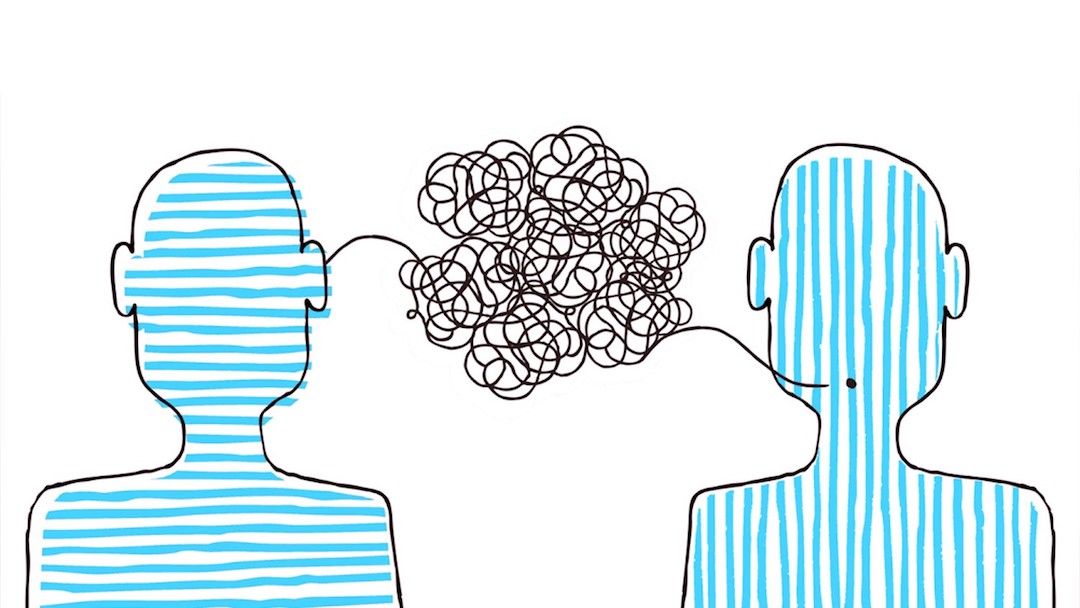What does it really mean to say that humans are social beings? How does it really affect us that we are embedded in our relationship?
And what does this mean for discipleship?
I’m continuing with Barrett’s new book, Seven and a Half Lessons About the Brain (I’m working through chapters as part of the launch of the Being With podcast on neuroscience and faith).
Previous Posts:
- Your Brain Is Not For Thinking
- You Have One Brain (Not Three)
- Your Brain is a Network
- Your (Social) Brain Wires to the World
- Your Brain Predicts (Almost) Everything
- Your Brain Works With Other Brains
- Brains Build More Than One Kind of MIND
- Our Brains Create Social Reality
Wired to Others
As we mentioned in the third post, our brains tune and prune to reality in relationship to the people around us.
As babies, we learn to manage our body budget (how we use energy) through the help of a caregiver. We also learn what is important in our environment through ‘shared attention’ and mirror neurons.
In a real sense, we are wired to our social reality as much as we are to our physical reality.
And this doesn’t change when we grow up.
Co-Regulating Each Other
Everyday, every moment, we are passing energy back and forth with other people (and I’m not talking about food).
We actually regulate our body budget (our energy reserves) with and through other people (who are also regulating their body budget with and through us).
As Barrett says, “For your whole life, outside of your awareness, you make deposits of a sort into other people’s body budgets, as well as withdrawals, and others do the same for you” (83-84).
This is called co-regulating. And it happens between lovers, friends, and even strangers.
And this co-regulating happens through our actions and our words.
Our Actions Affect Others
Our non-verbal signals and physical touch, even just proximity, communicate and pass (social/emotional) energy from person to person.
“If you raise your voice, or even your eyebrow, you can affect what goes on inside other people’s bodies, such as their heart rate or the chemicals carried in their bloodstream. If your loved one is in pain, you can lessen her suffering merely by holding her hand” (85).
Positive relationships produce a continual supply of positive social inputs (call it energy through social food) that places our nervous systems and endocrine systems in a more relaxed stance. In a real sense, positive social relationships place deposits in our body budget, giving us more resources for repairing the body and fighting off infection. This is why people in positive relationships get sick less often and live longer—on average (85-86).
Of course, the opposite it true.
Negative relationships place our nervous and endocrine systems on high alert, drawing away resources from our body budget, causing us to get sick more often and to recover more slowly.
Our Words Affect Others
That fact that our brains work with other is true for more than just our non-verbal interactions.
If during a stressful day you get a message from your spouse that says I love you, this will cause a positive reaction in your body. You might feel more calm, confidence, and competent. This is a deposit in your body budget.
But if you got a text that says Did you leave the oven on? your nervous system will go on high alert because of some combination of fear and shame (fear that your house might burn down, and shame for forgetting to turn the oven off). This will feel like a withdrawal from your body budget.
Other People: The cause and solution to all our problems
Because our brains are always working in connection with other brain, then we have to come to terms with the reality that other people are both the cause and solution of all our problems.
As Barrett makes clear, “The best thing for your nervous system is another human being. The worst thing for your nervous system is also another human being” (93).
The Body of Christ (is a certain kind of body budget system)
Not to be reductive (because I fully believe in all the spiritual realities talked about in the Bible), but the church at its best should be an entirely different kind of “communal body budgeting” system, producing and extending life through each other as we are all connected to God.
The Body of Christ is the place where love reigns, hope lives, and faith works.
The Body of Christ is the place where forgiveness is given and received, mercy is offered, and truth lived.
The Body of Christ is a place where grace is the continual process of depositing freely in others, and learning how not to perniciously cause withdrawals, and practicing the process of relational repair when ruptures occur.
In this way the Body of Christ will share the Mind of Christ in all things.
At least, that is the way it should be.
The Body of Christ, at its best, should be this way—building each other up instead of tearing each other down.
As Paul says, “So Christ himself gave the apostles, the prophets, the evangelists, the pastors and teachers, to equip his people for works of service, so that the body of Christ may be built up until we all reach unity in the faith and in the knowledge of the Son of God and become mature, attaining to the whole measure of the fullness of Christ” (Eph. 4:11-13).
Don’t miss any neuroscience and faith summaries of Barrett’s work. Please subscribe to my newsletter (here or above in the sidebar) and/or listen to Being With: On Neuroscience and Faith.

